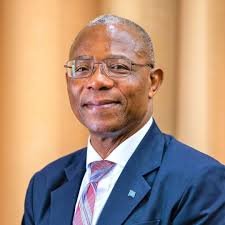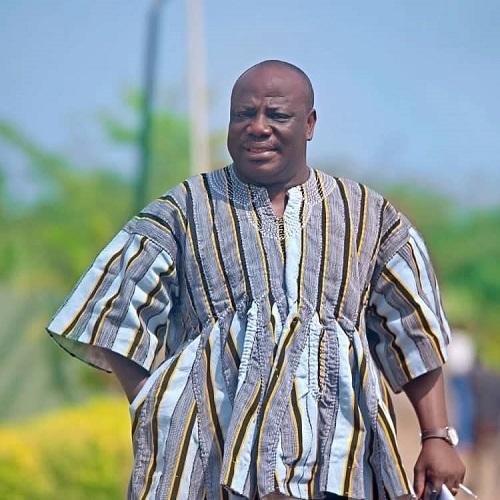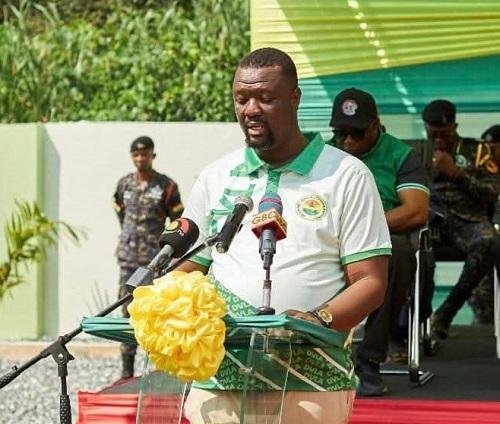Hot!
‘Ghanaman Time’ impeding development, leaders must set good example

Georgina Asare Fiagbenu
Lateness for work and other important activities appears to have garnered a place in the scheme of things for majority of Ghanaians.
The canker has sunk so deep in the Ghanaian DNA that it has been christened the ‘Ghanaman Time’, a parlance partially accepted among a certain class of people.
Upshots of this are the precious hours wasted at public events due to the late arrival of guests at events, especially the political elites whose absence means everyone must be held for hours.
But a Global Communication Expert, Mr Ben Dotsei Malor believes the lateness scourge was beginning to have a negative impact on various sectors of the country and largely, impeding development and calling for a change in attitude.
Mr Malor believes that one of Ghana’s major problems as far as development was concerned was her disrespect to time and unpunctuality.
Speaking at the latest online ‘Time Keeping Dialogue’ series on Sunday hosted by Head, Corporate Communications at MTN, Mrs Georgina Asare Fiagbenu, as part of efforts to address the challenge, Mr Malor called on leaders to set good examples by attending events on time.

The virtual conversation was under the theme, ‘Ghanaman Time’ to Greenwich Mean Time – Lessons from the Diaspora.”

Mr Malor, Chief Editor of Dailies at the United Nations (UN) News and Media Division of the UN Department of Global Communications, said the canker was impeding development and Ghanaian leaders must be concerned.
“We have normalised the abnormal, accepted the unacceptable, tolerated the intolerable, defended the indefensible, and condoned what should be condemned. This is impeding our development,” he stated.
He said, it was regrettable that leaders attend events late and expect their subordinates to be on time.
The change, he said, must start with leadership so that they would be able to punish people for their lateness.
Mr Dotsei Malor proposed that, financial consequences must be attached to lateness to put people on their toes.
“When one loses a portion of his or her salary due to lateness, it would stop them from making excuses not to be at work early,” he stated.
Mr Malor acknowledged that the issue was not unique to Ghanaians, citing Ecuador, where in 2003 the government declared a state of emergency to address chronic lateness estimated to cost the country $2.5 billion annually.
However, the former BBC Editor said the issue was more damaging in Ghana compared to other countries.
Mr. Dotsei Malor asserted that the disrespect for time, where a programme scheduled for 10am-12pm eventually begins at 11:30am, was largely why most Ghanaians were poor and the economy, in a bad state.
“Being time-conscious means increased productivity, and productivity means efficiency. A lack of this results in inefficiency, lack of success, and other problems,” he stated.
According to Mr. Dotsei Malor, acknowledging the impact of time wasting was a step in eradicating the ‘Ghanaman time” that has persisted for years.

On her part, Kirstie Angsmann, a member of the Migrants Council and Women’s Commission in Freiburg, Germany, added that in Germany, the system is structured that excuses like ‘my car broke down’ or ‘I was stuck in traffic’ were not tolerated.
Mrs. Kirstie Angsmann, a Ghanaian woman married to a German, noted that Ghanaians needed to take every bit of their time seriously, just as it is done in Germany.
Mrs Georgina Asare Fiagbenu in her closing remarks, said more of such conversations would be held to address the challenge and ensure productivity across all sectors of the economy.
By Michael D. Abayateye
Hot!
Minority opposes proposed Telecel-AT merger, describes deal as ‘Unconscionable’

The Minority in Parliament has strongly objected to any planned merger or partnership between the government and Telecel, describing the deal as “technically, operationally, and financially unconscionable.”
Ranking Member on the Communications Committee, Matthew Nyindam, raised the concern during a media briefing in Parliament.
He questioned why both the Minister of Communications and Telecel would publicly announce a merger and then suddenly go silent on the matter.
“We object to any deal with Telecel by way of merger, absorption, or acquisition. This is a scheme to dispose of a national asset to fill private pockets,” Mr. Nyindam stated.
He argued that Telecel has not demonstrated any special technical or operational expertise that staff and management of AT (formerly AirtelTigo) do not already possess.
According to him, Telecel had earlier promised to invest $500 million after acquiring Vodafone Ghana but failed to do so, a situation he fears could repeat itself if the government allows another deal.
Mr. Nyindam claimed that Telecel was already indebted to the tune of $400 million, adding that the company only seeks to benefit from AT’s over three million customers to expand its own base without making any real investment.
“The government must not surrender the capacity of a state-owned company to a private entity through majority ownership. There is no clear plan to protect the jobs and livelihoods of thousands of workers,” he stressed.
The Minority Caucus is therefore calling on the government to halt any discussions or agreements with Telecel regarding the proposed merger, insisting that the deal is not in the national interest.
Hot!
DVLA suspends road compliance fines

The Driver and Vehicle Licensing Authority (DVLA) has suspended all fines issued by its Compliance Team on the country’s roads, effective Wednesday, October 15, 2025.
In a statement issued on Tuesday, the Authority explained that the suspension follows feedback from the public and further consultations with stakeholders.
The Compliance Team’s enforcement exercise, which had been intensified in recent weeks, was aimed at ensuring that drivers and vehicles met all legal requirements before operating on the road.
However, the DVLA said it was pausing the activity to allow for more engagement and public education on the exercise before it is reintroduced.
While assuring the public of its commitment to promoting safety and compliance, the Authority emphasized that the suspension only affects the fines and charges being enforced by the Compliance Team.
It added that all legal requirements for drivers and vehicles to operate on Ghana’s roads remain in force.
By: Jacob Aggrey

 Profile6 days ago
Profile6 days agoAlbert Litela Obidiaba: The artist who wove Ghana’s soul into the King’s Baton

 News6 days ago
News6 days agoDaddy Lumba’s wife, children run to court to injunct December 6 funeral arrangements

 News1 week ago
News1 week agoPresident Mahama to meet Auditor-General, Chief Justice and Attorney-General over misuse of public funds






